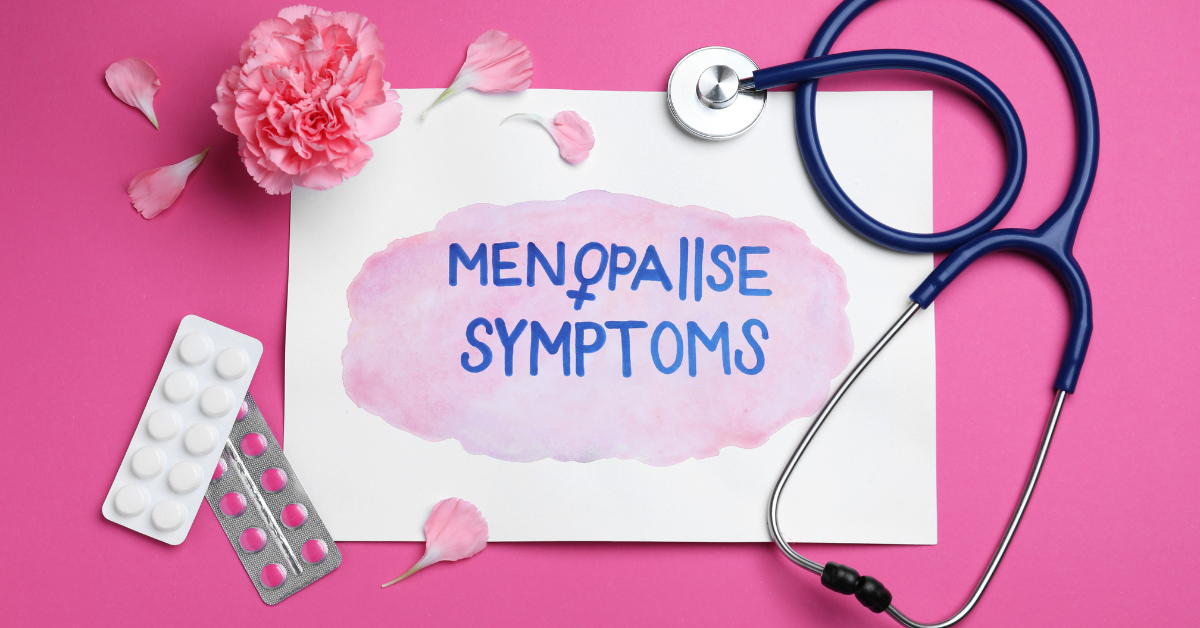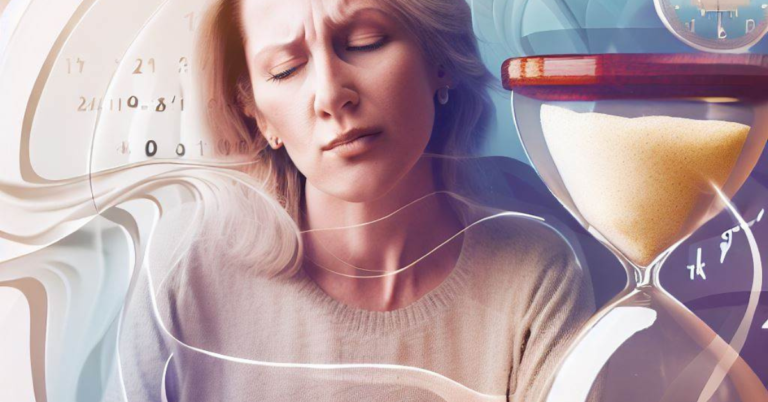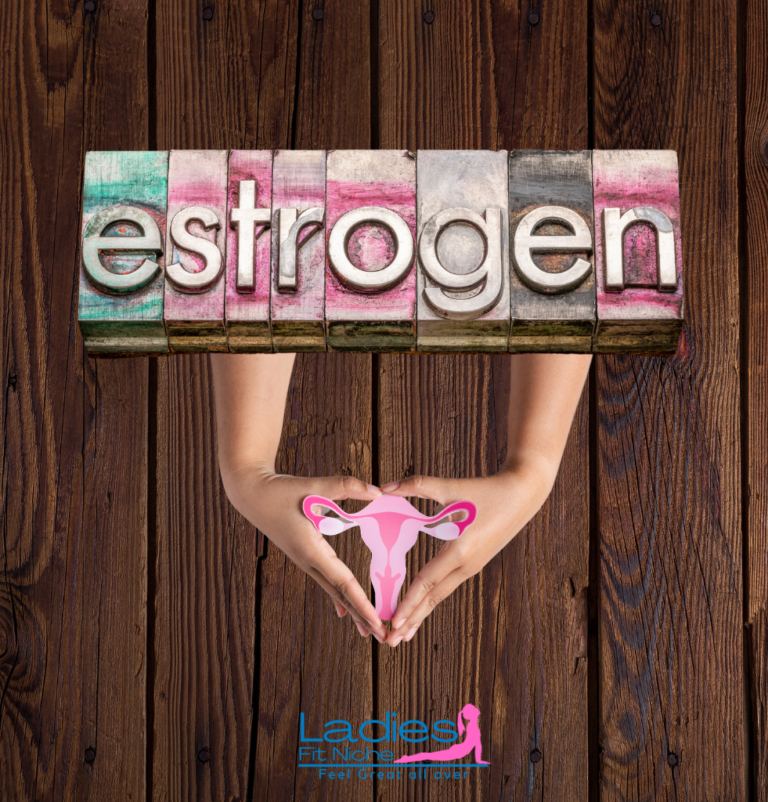A New Chapter Unfolds: Navigating The Symptoms Of Menopause At 50 And Beyond
Menopause is a natural biological process that marks the end of a woman’s reproductive years. It typically occurs in women around the age of 50 and beyond. This transition is significant as it brings about various physical and emotional changes due to hormonal fluctuations. Understanding the symptoms associated with menopause is crucial for women in order to navigate this stage of life with ease and seek appropriate relief.
The Significance of Recognizing and Understanding Menopausal Symptoms
Recognizing and understanding menopausal symptoms is essential for women entering this phase of life. By being aware of the changes their bodies may undergo, women can better manage and alleviate the discomfort and challenges that may arise. Moreover, understanding these symptoms helps women distinguish between normal signs of menopause and potential health concerns, enabling them to seek appropriate medical guidance when needed.
By staying informed about menopausal symptoms, women can take proactive steps to ensure their overall well-being and maintain a high quality of life during this transition. It’s important to remember that menopause is a unique experience for each woman, and while some symptoms may be common, their intensity and duration can vary.
Now, let’s explore the various symptoms that women may experience during menopause at 50 and beyond.
Understanding Menopause
Menopause is a natural biological process that marks the end of a woman’s reproductive years. It is defined as the permanent cessation of menstruation and fertility. While menopause is a normal part of a woman’s life, it can bring about various physical and emotional changes. In this article section, we will delve into the intricacies of menopause, including its typical age range, hormonal changes, stages, and average duration.
Define Menopause and Its Typical Age Range
Menopause refers to the point in a woman’s life when she has not had a menstrual period for 12 consecutive months, indicating the end of her reproductive years. The average age of menopause in most women is around 51, but it can occur anywhere between the ages of 45 and 55. However, it’s important to note that every woman’s experience with menopause is unique, and individual factors such as genetics, lifestyle, and overall health can influence the timing of menopause.
Hormonal Changes During Menopause
Menopause is primarily characterized by hormonal fluctuations in a woman’s body. As a woman approaches menopause, her ovaries gradually produce less estrogen and progesterone, the two key hormones involved in regulating the menstrual cycle and fertility. These hormonal changes can result in a wide range of symptoms, including hot flashes, night sweats, mood swings, vaginal dryness, and sleep disturbances.
The Stages of Menopause
Menopause is typically divided into three stages: perimenopause, menopause, and post-menopause.
1. Perimenopause: This stage precedes menopause and can start several years before a woman’s last menstrual period. During perimenopause, hormone levels fluctuate, and women may experience irregular periods, along with symptoms such as hot flashes and mood changes.
If you want to learn more about Perimenopause take a look at this article: Is Perimenopause Turning Your Life Upside Down? Discover What Women Over 40 Need to Know Now
2. Menopause: Menopause is officially diagnosed after 12 consecutive months without a menstrual period. At this stage, the ovaries cease to release eggs, and hormone levels, particularly estrogen, remain consistently low. Symptoms experienced during perimenopause may continue into menopause.
3. Post-menopause: Post-menopause refers to the years following menopause. During this stage, most menopausal symptoms tend to decrease, although some women may still experience certain issues such as vaginal dryness or bone loss. It’s important to note that postmenopausal women are at an increased risk of certain health conditions, including osteoporosis and heart disease.
Average Duration of Menopause
The duration of menopause varies for each woman. On average, women experience menopause for approximately four to five years. However, some women may have a shorter or longer duration, with some symptoms persisting for more extended periods. It’s important to seek medical advice and support during this transitional phase to manage symptoms effectively and maintain overall well-being.
Understanding menopause is crucial for women as they navigate this significant life transition. By familiarizing themselves with the stages, hormonal changes, and average duration of menopause, women can better equip themselves with knowledge to make informed decisions and seek appropriate support for managing any associated symptoms or health concerns.
Common Symptoms of Menopause
During menopause, women often experience a variety of physical and emotional changes. Here are some of the common symptoms associated with menopause:
1. Hot flashes and night sweats: Many women experience sudden feelings of heat, often accompanied by profuse sweating, particularly at night. These hot flashes can disrupt sleep and cause discomfort.
2. Irregular menstrual cycles: As menopause approaches, menstrual periods may become irregular, with variations in frequency and flow. Eventually, menstruation ceases altogether.
3. Vaginal dryness and discomfort during sex: Declining estrogen levels can lead to vaginal dryness, itching, and discomfort during sexual intercourse. This can impact a woman’s sexual satisfaction and overall quality of life.
4. Mood swings and irritability: Hormonal fluctuations can affect mood regulation, leading to mood swings, irritability, and increased emotional sensitivity. Some women may experience symptoms of anxiety or depression.
5. Sleep disturbances and insomnia: Menopause can disrupt sleep patterns, making it difficult to fall asleep or stay asleep throughout the night. Sleep disturbances can contribute to daytime fatigue and decreased energy levels.
6. Fatigue and decreased energy levels: Many women going through menopause may experience fatigue and a general decrease in energy levels. Hormonal changes, sleep disturbances, and other symptoms can contribute to feelings of tiredness.
7. Weight gain and changes in body composition: During menopause, some women may notice an increase in body weight, particularly around the abdomen. Metabolic changes and hormonal fluctuations can contribute to changes in body composition.
8. Loss of libido and sexual changes: Decreased estrogen levels can lead to a decrease in sexual desire and arousal. Some women may also experience changes in their sexual response, such as reduced sensitivity or difficulty reaching orgasm.
9. Memory problems and difficulty concentrating: Some women report experiencing memory problems and difficulty with concentration during menopause. These cognitive changes are often temporary and linked to hormonal fluctuations.
10. Bone loss and increased risk of osteoporosis: Estrogen plays a crucial role in maintaining bone density. As estrogen levels decline during menopause, women become more susceptible to bone loss and an increased risk of osteoporosis.
It’s important to note that not all women experience the same symptoms, and the severity of symptoms can vary. If you are experiencing bothersome symptoms during menopause, it is recommended to consult with a healthcare professional who can provide guidance and support.
Less Common Symptoms of Menopause
While there are common symptoms associated with menopause, it’s important to note that women may also experience less common symptoms during this transitional phase of life. Here are some of the less common symptoms of menopause:
1. Headaches and migraines: Some women may experience an increase in headaches or migraines during menopause. Hormonal fluctuations can trigger these headaches, and they can vary in intensity and frequency.
2. Urinary incontinence and frequent urination: Menopause can affect the urinary system, leading to symptoms such as urinary incontinence (involuntary leakage of urine) or an increased frequency of urination. These changes can be attributed to decreased estrogen levels and weakened pelvic floor muscles.
3. Joint and muscle pain: Menopause can be accompanied by joint and muscle pain. Some women may experience increased stiffness, joint aches, or muscle discomfort. These symptoms can be related to hormonal changes and the natural aging process.
4. Digestive issues: Menopause can impact the digestive system, leading to symptoms such as bloating, indigestion, or changes in bowel movements. Hormonal fluctuations and decreased estrogen levels can contribute to these digestive changes.
5. Skin changes and dryness: Changes in hormone levels can affect the skin during menopause. Some women may experience dryness, itchiness, or a decrease in skin elasticity. These changes can contribute to the development of wrinkles or skin thinning.
6. Hair loss or thinning: Hormonal fluctuations during menopause can impact hair growth cycles. Some women may notice increased hair shedding or thinning of the hair on the scalp. These changes are often temporary and can be managed with proper care.
7. Changes in vision: Menopause can also affect vision for some women. Dry eyes, blurred vision, or changes in visual acuity may occur due to hormonal fluctuations. Regular eye examinations are recommended to monitor any changes and address them appropriately.
It’s important to remember that not all women will experience these less common symptoms, and the severity can vary from person to person. If you are concerned about any symptoms you are experiencing during menopause, it is advisable to consult with a healthcare professional for a proper evaluation and guidance.
Coping Strategies and Relief
Managing the symptoms of menopause and finding relief is an important aspect of navigating this transitional phase. Here are some coping strategies and options for finding relief:
1. Lifestyle changes: Adopting a healthy lifestyle can help alleviate menopausal symptoms. This includes maintaining a balanced diet rich in fruits, vegetables, whole grains, and lean proteins. Regular exercise, such as aerobic activities and strength training, can also be beneficial. Additionally, stress management techniques like yoga, meditation, or deep breathing exercises can help reduce the impact of stress on menopausal symptoms.
2. Hormone replacement therapy (HRT) and other medical treatments: Hormone replacement therapy involves taking medications that contain hormones like estrogen and progesterone to replace the declining levels in the body. HRT can help alleviate symptoms like hot flashes, vaginal dryness, and mood swings. However, it is important to discuss the potential risks and benefits of HRT with a healthcare professional, as it may not be suitable for everyone.
3. Alternative and complementary therapies: Some women find relief from menopausal symptoms through alternative and complementary therapies. These can include herbal supplements, such as black cohosh or soy isoflavones, which may help manage hot flashes and mood swings. Acupuncture, massage therapy, and mind-body techniques like relaxation exercises or aromatherapy can also provide relief for certain symptoms. It is essential to consult with a healthcare professional before starting any alternative therapies to ensure their safety and efficacy.
4. Support groups and counseling: Joining support groups or seeking counseling can be valuable during the menopause transition. Connecting with other women going through similar experiences can provide emotional support and practical tips for managing symptoms. Professional counseling can help address any emotional or psychological challenges that may arise during this time.
5. Consulting a healthcare professional: It is important to emphasize the significance of consulting a healthcare professional for personalized advice and guidance during menopause. They can assess individual symptoms, medical history, and overall health to recommend suitable treatments or interventions. Healthcare professionals can also monitor and manage any potential health risks associated with menopause, such as osteoporosis or cardiovascular health.
By implementing these coping strategies and seeking appropriate relief, women can effectively manage the symptoms of menopause and improve their overall well-being. It’s important to remember that what works for one person may not work for another, so finding the right combination of strategies may require some trial and error. With the support of healthcare professionals and a proactive approach to self-care, women can navigate the menopause transition with confidence and comfort.
Frequently Asked Questions
Here are answers to some commonly asked questions about menopause:
Are all women’s experiences of menopause the same?
No, every woman’s experience with menopause is unique. While there are common symptoms and patterns associated with menopause, individual factors such as genetics, lifestyle, and overall health can influence the timing and severity of menopausal symptoms. Some women may have a relatively smooth transition with minimal symptoms, while others may experience more pronounced physical and emotional changes. It’s important to remember that each woman’s journey through menopause is personal and may differ from others.
How long do menopause symptoms typically last?
The duration of menopause varies for each woman. On average, women experience menopause for approximately four to five years. However, some women may have a shorter or longer duration, with some symptoms persisting for more extended periods. The length and severity of menopausal symptoms can also be influenced by factors such as genetics, overall health, and lifestyle choices. Seeking medical advice and support can help manage symptoms effectively during this transitional phase.
Can menopause start before the age of 50?
Yes, menopause can start before the age of 50. While the average age of menopause in most women is around 51 years old, it is possible for menopause to occur earlier. This is known as early menopause or premature ovarian insufficiency. Various factors can contribute to early menopause, including genetics, certain medical conditions, surgeries, or treatments such as chemotherapy or radiation therapy. If menopause symptoms are experienced before the age of 40, it is recommended to consult with a healthcare professional for a proper evaluation and guidance.
Can hormone replacement therapy be used to alleviate symptoms?
Yes, hormone replacement therapy (HRT) can be used to alleviate menopausal symptoms for some women. HRT involves taking medications that contain hormones, such as estrogen and progesterone, to replace the declining levels in the body. Estrogen-only therapy is typically recommended for women who have undergone a hysterectomy, while a combination of estrogen and progesterone is used for women with an intact uterus. HRT can help alleviate symptoms such as hot flashes, vaginal dryness, and mood swings. However, the decision to use HRT should be based on an individual’s medical history, risks, and potential benefits. It is essential to discuss the options with a healthcare professional.
Are there any natural remedies for menopause symptoms?
There are various natural remedies and lifestyle adjustments that can help manage menopausal symptoms for some women. These include:
1. Maintaining a balanced diet: Consuming a nutritious diet rich in fruits, vegetables, whole grains, and lean proteins can support overall health and alleviate some menopausal symptoms. Including foods high in phytoestrogens, such as soy products, flaxseeds, and legumes, may help with hot flashes and vaginal dryness.
2. Regular exercise: Engaging in regular physical activity, such as aerobic exercises, strength training, or yoga, can help manage symptoms like hot flashes, mood swings, and weight gain. Exercise also promotes overall well-being and can improve sleep quality.
3. Stress management techniques: Practicing stress management techniques like deep breathing exercises, meditation, or mindfulness can help reduce the impact of stress on menopausal symptoms. Stress reduction techniques can promote relaxation and emotional well-being.
4. Herbal supplements: Some herbal supplements, such as black cohosh, red clover, or evening primrose oil, are commonly used to alleviate menopausal symptoms. However, it is important to consult with a healthcare professional before starting any herbal remedies, as they may interact with other medications or have potential side effects.
It’s important to note that natural remedies may not be effective for everyone, and their impact can vary from person to person. Additionally, it’s always a good idea to consult with a healthcare professional before incorporating any new remedies or making significant lifestyle changes. They can provide personalized guidance based on your specific needs and medical history.
Remember, menopause is a unique experience for each woman, and finding the right combination of strategies that work for you may require some trial and error. Seek support, stay informed, and prioritize self-care as you navigate this transformative phase of life.
Conclusion
In this article section, we have delved into the intricacies of menopause, providing valuable information to help you understand this significant life transition. Let’s recap the key points we discussed:
– Menopause is a natural biological process that marks the end of a woman’s reproductive years. It is defined as the permanent cessation of menstruation and fertility.
– Every woman’s experience with menopause is unique, influenced by factors such as genetics, lifestyle, and overall health.
– Menopause is primarily characterized by hormonal fluctuations, particularly a gradual decrease in estrogen and progesterone levels.
– Menopause is typically divided into three stages: perimenopause, menopause, and post-menopause.
– Common symptoms of menopause include hot flashes, night sweats, irregular menstrual cycles, mood changes, vaginal dryness, sleep disturbances, and changes in sexual function.
– Less common symptoms may include headaches, joint and muscle pain, changes in vision, and skin and hair changes.
– The average duration of menopause is approximately four to five years, but it can vary for each woman.
– Coping strategies and relief options include lifestyle changes, hormone replacement therapy (HRT), alternative and complementary therapies, and support groups or counseling.
– It’s important to consult with healthcare professionals for personalized advice and guidance during the menopause transition.
We understand that going through menopause can be a challenging and transformative time in a woman’s life. We empathize with the physical and emotional changes that accompany this transition. Remember that seeking support, information, and professional guidance is crucial. You are not alone in this journey.
If you have any concerns or questions about menopause, we encourage you to reach out to healthcare professionals who can provide tailored advice based on your specific needs. They can offer valuable support and help you navigate this phase with confidence and comfort.
Stay informed, prioritize self-care, and remember that menopause is a natural part of life. Embrace this new chapter and take proactive steps to maintain your well-being. You deserve to thrive during and after menopause.







